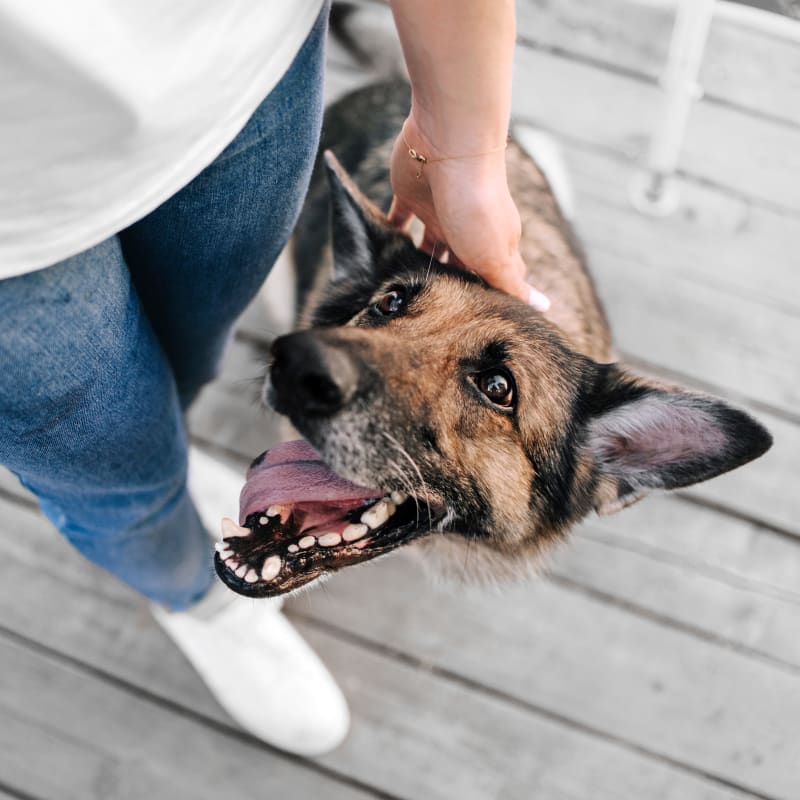What is Dental Surgery?
Dental surgery is any surgical procedure, which addresses oral health issues experienced by your pet.
Routine dental health care, both at home and at annual appointments, is the best way to ensure your pet's oral health.
However, sometimes health issues emerge regardless of routine dental care, whether they are caused by an acute injury, or genetic factors.
When serious oral health issues arise in your pet, staff offers surgical services designed to restore your companion's dental health and treat a wide range of issues, from tooth decay to gum disease.

Common Dental Conditions
Some common oral health issues which may require dental surgery may include:
- Cracked or broken teeth
- Tooth decay
- Severe gum disease (periodontitis)
- Jaw fractures
- TMJ (temporomandibular joint) luxation or dysplasia
- Feline stomatitis
Dental Surgery FAQs
- What happens during the surgical consultation?
During the surgical consultation, our vets will perform a physical examination of your pet and conduct tests, including blood work, to determine the nature of their condition.
- Will the surgery and consultation happen on the same day?
To assess the nature of your pet's dental issues and provide you with an estimate for any necessary surgery, a consultation appointment is mandatory. However, the surgery itself will be scheduled for a separate day.
- How long will the surgery take?
Dental surgeries will often last between 2 and 4 hours, with some difference depending on the kind of surgery being performed and on your pet's condition.
- Does my pet have to stay at the hospital overnight either before or after the surgery?
No. Most dental surgery patients can go home by 6 pm on the same day. However, if the patient needs additional monitoring overnight, the pet’s owner will transport their pet to a local 24-hour emergency facility for overnight monitoring.
Home Care After a Dental Surgery
After dental surgery has been completed and your vet has decided they don't require any further in-hospital monitoring, it will be time for your pet to come home.
Depending on the kind of dental surgery your pet underwent, they will have different needs. You should always follow the post-operative care instructions provided to you by your vet. If you cannot remember, you can always contact them to ask.
Your pet may require pain relief and anti-inflammatory medications and will also need plenty of rest. As a rule, try and prevent your pet from undertaking too much physical activity for 48 hours after their procedure.
And since dental surgery may make your pet's mouth sensitive and prone to injury or infection while it heals, it is important to follow your vet's instructions closely when it comes to feeding and watering your companion.
If your pet is not eating, is rubbing its mouth, or is showing signs of infection like swelling or bleeding, contact your Fairvale Animal Hospital staff as soon as possible.

